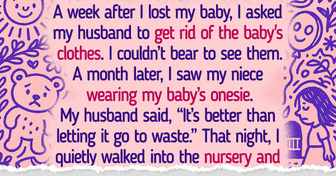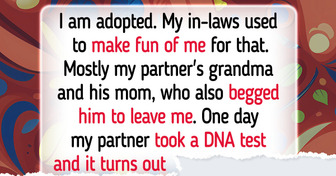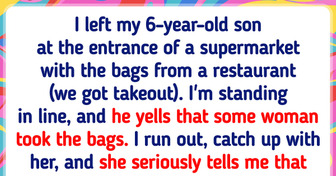17 Times When Social Media Photos Were Different From Real Life

A parenting specialist and mother of 3 young children believes that kids and their parents are sincerely good inside. However, she often sees a gap between goodness and instability in families, which is why she is very passionate about parenting. The behavior of children and parents sometimes isn’t as great, and that’s why she is using her years of training to figure out actionable strategies that families can use.
Bright Side is offering a list of tips taken from Dr. Kennedy’s Instagram page that may be helpful for parents to build their children’s self-confidence and worth as they grow into adults.
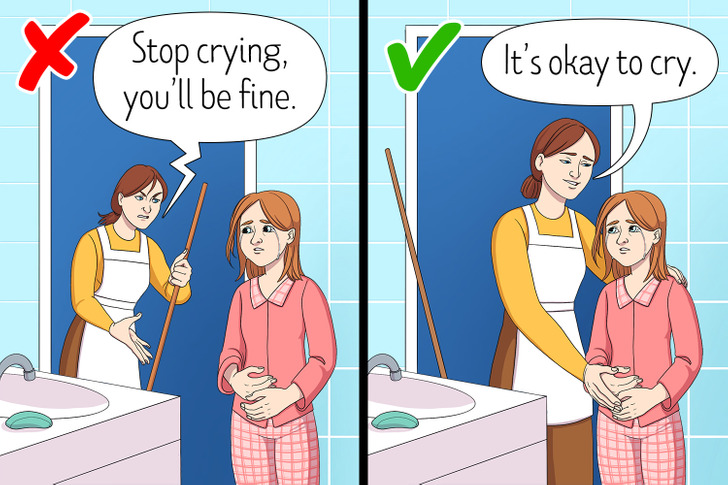
If you tell your child that they should stop crying, then they might cry even more and think that they should be fine by force, causing them to develop self-doubt and anxiety in the long run.
When your child cries, it’s important to let them know that the pain they are experiencing is accepted. Crying is an indication of emotions, and if parents neglect their child’s feelings, this may ruin their self-confidence. Shedding some tears is not a bad thing or something to be ashamed of, but rather, an occurrence that should be respected and honored.
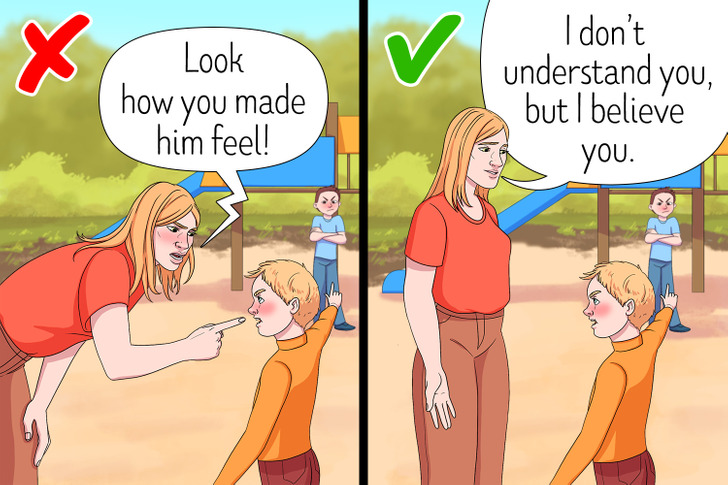
Your child is not growing into a bad person if they don’t feel empathy toward others. They feel the way you see them, and they behave the way you behave toward them.
Kids cannot make smart decisions by themselves, and that’s why parents come in to guide them. You can show your child what empathy means when you are empathetic toward them in these tough situations. It’s important to be consistent with this in order for your child to understand, as it cannot happen overnight.

The best way to teach your child to become self-confident is by showing them the importance of how something feels to them, rather than what others may think of it. Positive body image comes from within, not “outside-in.”
It’s not a bad thing to say, “That looks great on you,” in response to your child’s new outfit once in a while, as this can decrease their anxiety at the moment, but in the long-term, it can increase it. Sometimes changing your responses can make your child think, “I feel better in the other outfit.” This makes the child develop their own feelings about themselves instead of listening to others.

It can seem disrespectful when your child lies to you, but it’s important to disregard your own feelings and “betrayal” in this case and turn to your child’s feelings. Kids may lie to you so they can protect their connection with you.
Your kid might lie to you because they know the consequences of being judged and screamed at for it. However, if you act with concern and understanding, then they will be honest each time.
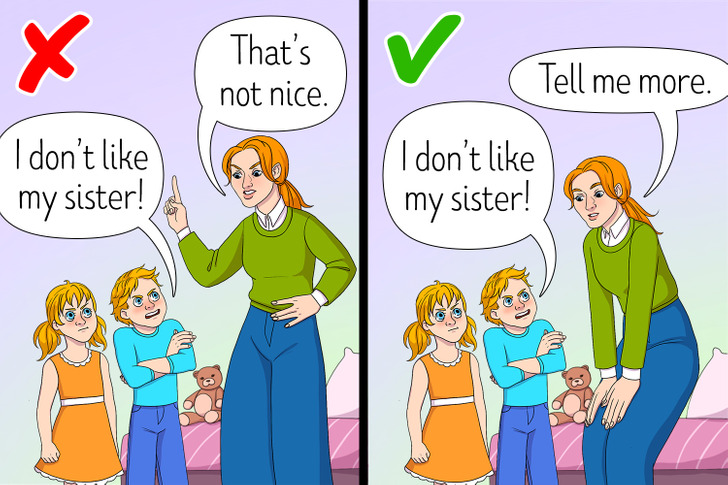
It’s only normal for your children to say mean things about their family members or make fun of their friends from time to time — and it’s crucial to react to this in the right way so your child can build regulation and behave better.
“Our child’s words are a window into our child’s world. Don’t take the exact words at face value. Instead, use your child’s words to inquire into the more important and larger story underneath. This does not reinforce bad behavior, this helps your child get to the root of what’s upsetting them, which helps your child build regulation, which leads to better behavior,” Dr. Becky Kennedy explains.

To be present and connected to your child is essential to their well-being. This doesn’t mean that you must go out of your way to please them, such as walking to the park in the cold weather or solving their favorite puzzle all day. A sweet and simple whisper can show them they are special to you.
Connectedness with your child may lead to better behavior and unity for the moment and improved regulation and confidence for the future.

When your child feels lonely and confused about what is happening in their surroundings, it can cause behavioral damage and dysregulation. That’s why it’s important to put your child in the know when things around them are changing.
You don’t need to tell your child everything specifically, but simply talk it out to “validate their perceptions and then share details based on their age.” This can make them feel emotionally secure in their unpleasant circumstances.

In some cases, “how” they’ve accomplished something is more important than “what” they’ve accomplished. When you express interest in your child’s mental process, they become the main topic of conversation. This can make them feel worthy inside, and it blooms their self-confidence.
Saying, “Great job, how awesome,” can make your child feel like your main focus is their work and not them. This can plunge their confidence and cause internal insecurity.
Have you used any of these tips with your children before? How will you change your parenting strategy after reading this list?






